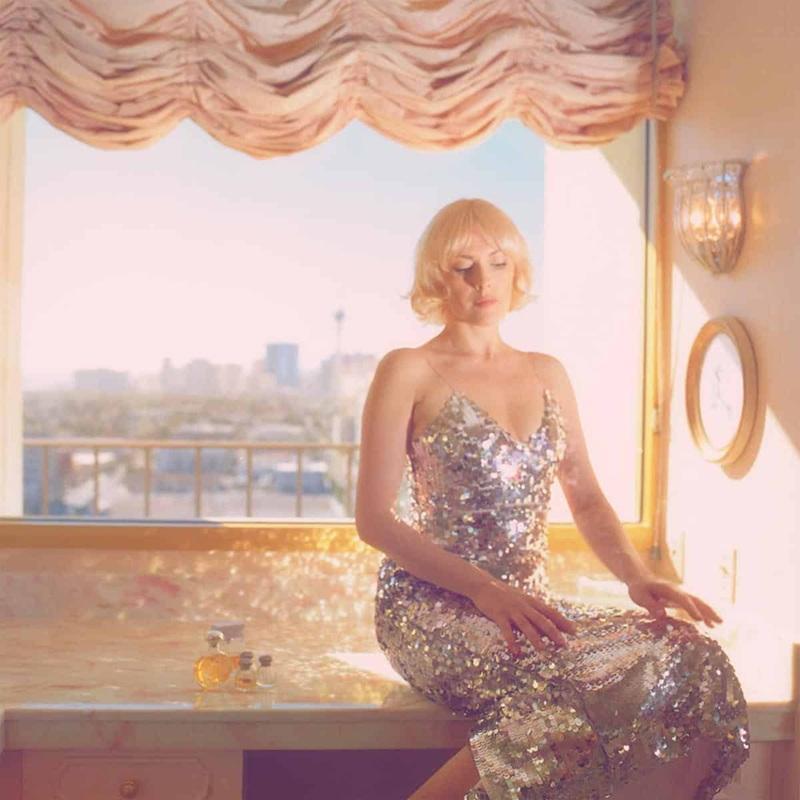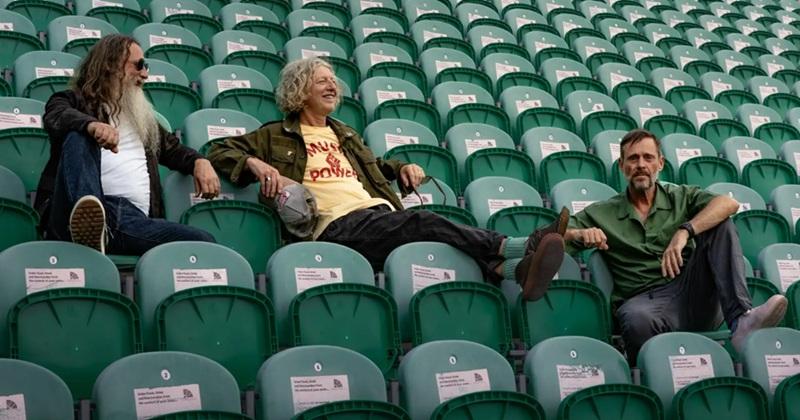
Movement, journeys and places are the subtexts which loom over everything on Gwenno’s new album.
It’s the strangest of admissions, but once explained makes perfect sense.
Utopia is Gwenno Saunders’ fourth solo album, following on from 2022’s Tresor.
What’s come before though she’s describing now as ‘childhood records’, backwards looking glances at the things that shaped the person.
Now in her early forties and a mother, the time, she felt, had come to write something akin to a debut album because it is, ‘That point
where I go out into the world on my own, which people generally write about first and then get on with their lives’.
It could be argued that her life has been as eventful to this point of self determination as anybody’s; Saunders was a teenager when she left school to take up the lead role in Michael Flatley’s Lord Of The Dance show in Las Vegas, spending two years as part of a hard partying cast.
Returning to London, she eventually ended up in The Pipettes, a band amongst the millions in history who would’ve been stars if their record sales had matched the blogosphere’s adulation. Their dissolution hit hard.
Creative revival though can come suddenly or in phases. As herself on record the words have been in Welsh or Cornish, not so much as a way of hiding their meaning but, as she’d grown up speaking both, because they were as much a part of her identity as learning or belief systems.
In the case of Utopia however, the main body is in English, a choice which Gwenno says is a way of, ‘Acknowledging that I can’t translate a lot of memories’.


Whether this makes it more or less accessible will be a matter of perspective. Opener London 1757 – which nostalgically centres on the conduit between Wales and the capital – begins with the sound of crowd noise before tantalisingly wrapping itself in wisps of phrases, the confidently within themselves instruments and feel retro glamourous.
Having mostly been conceived piano first, Utopia has by design an elegant, humanistic quality showcased on the title-track, which totes a sparkling cocktail lounge feel although it’s never quite clear whether this is a place rooted in fantasy or a findable pin on a personal map.
The scope, as we’re led to understand, is the last twenty-five years, but this is no journal. On songs like The Devil, references are allegorical; amidst the dusty funk Saunders insists that you might be lucky/unlucky to meet the man himself in Brighton, once The Pipettes hometown and a place where memories of all different stripes were likely made.
Movement, journeys and places are the subtexts which loom over everything. They range from the ostensibly mundane – 73 relates to a bus journey but also the discovery of familial roots in Dalston – but also the more profound via Ghost Of You’s evolutionary mapping of the changes in her adolescent Cardiff home.
In this nonlinear timeline, the moments reflect experiences which can come in any order depending on luck, circumstances or desire.
On the one hand, the slightly off kilter ode to prospective motherhood of St. Ives New School lies in one bubble, whilst Dancing On Volcanoes ponders the dynamics of nights in small speakeasys long closed down by avaricious landlords.
It’s comfortably the best track here, one where Gwenno has a clear notion of both loss and fondness for unreclaimable ghosts.
Utopia is a scrapbook, one which if it isn’t as musically ambitious as its predecessors has a warmth and charm that anyone that’s come from anywhere should be able to reach out and touch.






